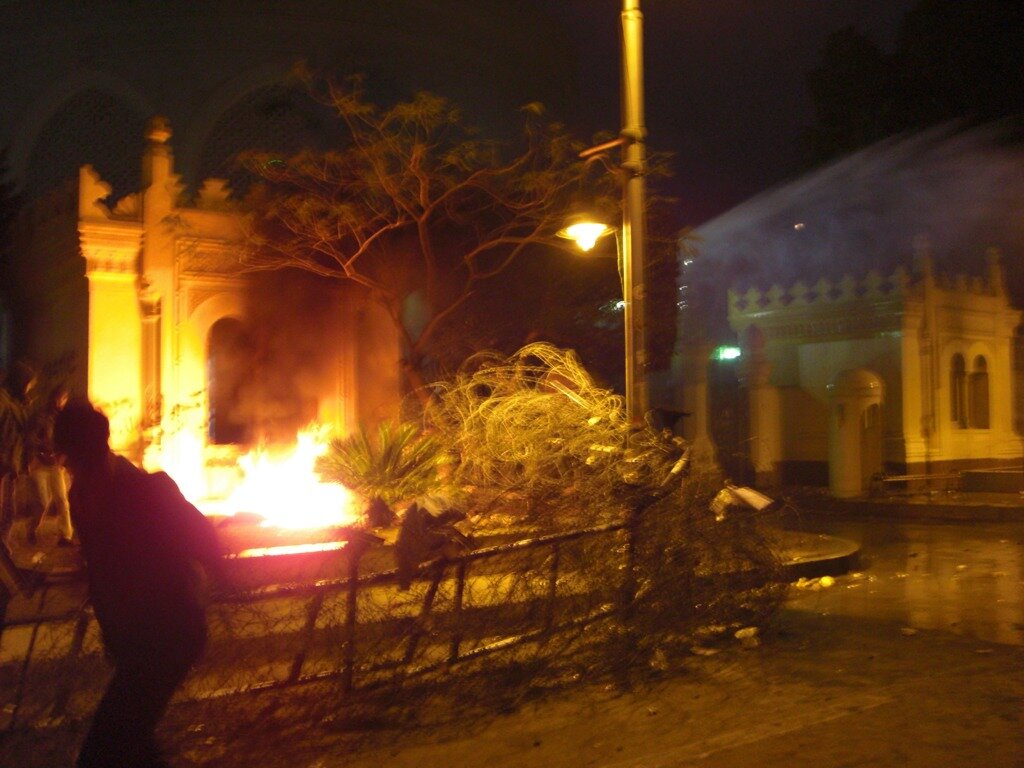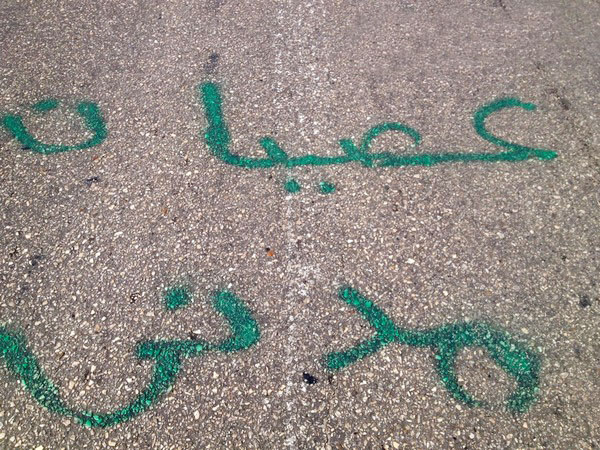CAIRO: Poets and artists may compare road networks to a web of intersecting watercourses: rivers branching off into creeks. Some are serene while others are turbulent. In places like Tokyo or Toronto, traffic is smooth even during rush hour. Other cities are reputed for their hellish traffic – and Cairo is on top of that list.
In the bustling, fast-paced metropolis, traffic can seem chaotic to outsiders, but Cairenes make sense of the flow of cars, carts, bikes and pedestrians to maneuver through the congested city.
These drivers know that besides the unreliable traffic lights and incomprehensible signs, there are unwritten road rules – or maybe it is a sixth sense one acquires with time.
Some are too lazy to signal before turning or changing lanes, assuming that the person behind them will know they intend to turn left as soon as the car starts to veer in that direction. Rearview and side mirrors may seem like superfluous accessories: Why should you look at the car behind you as long as they can see you and you see the person in front?
If by chance you make a careless maneuver, other drivers are considerate enough to let you know with a loud honk of their horns. Hey, as long the engine works enough to move the vehicle forward and the horn is loud enough to pierce ears, you have all you need to drive in Cairo – doors, seats, brakes and mirrors are optional.
Sarcasm aside, these driving habits lead to fatal road accidents. According to the World Health Organization, traffic accidents in Egypt cause around 6,000 deaths and more than 26,000 injuries every year. That’s an average of 16 deaths and 71 injured a day.
The three main causes of accidents are human errors, vehicle failure or unsuitable environment (including weather, road conditions, visibility, etc.). In most cases, the driver is at fault: Driving under the influence of drugs or alcohol, falling asleep at the wheel, using a mobile phone, reckless overtaking.
Cairo’s streets can be safer if drivers follow some responsible habits: Adjust tire pressure frequently, heed the speed limit, keep a distance between you and the car in front of you, take the wheel awake and drug-free, and remember that the open road is not a Formula 1 racetrack. Stuntmen carry out action sequences in movies and car chases are choreographed with a full rescue team standing by.
Because the streets are teeming with pedestrians, potholes, and different kinds of vehicles, drivers in Egypt should always be alert. A large bus can suddenly swerve right to let off a passenger, a slow-moving donkey cart can appear from behind a passing truck, the car in front of you can stop short or you can be overtaken by a truck carrying cows.
Many are hopeful that the new traffic law will help put things in order and force people to abide by driving rules by enforcing large fines and possible prison sentences on careless drivers. Others are skeptical that it will decrease the number of accidents on the road, saying that it is more likely to raise bribes to soaring records. Regardless of how effective it may be, motorists should always drive carefully!
To read the other stories in our monthly special focus on Egypt s automotive sector, click here:
http://www.thedailynewsegypt.com/article.aspx?ArticleID=16538
http://www.thedailynewsegypt.com/article.aspx?ArticleID=16537
http://www.thedailynewsegypt.com/article.aspx?ArticleID=16536

